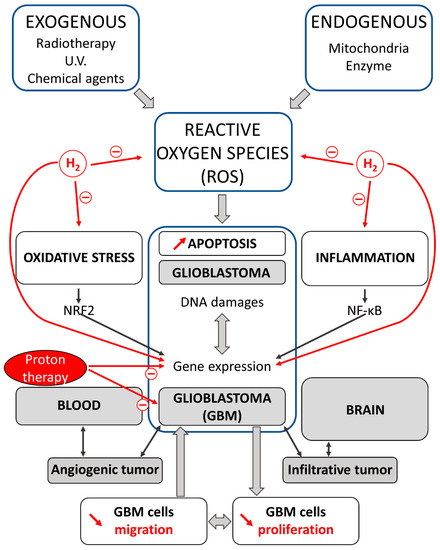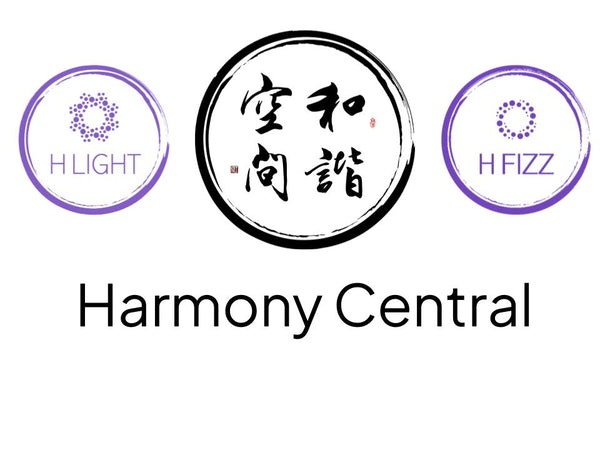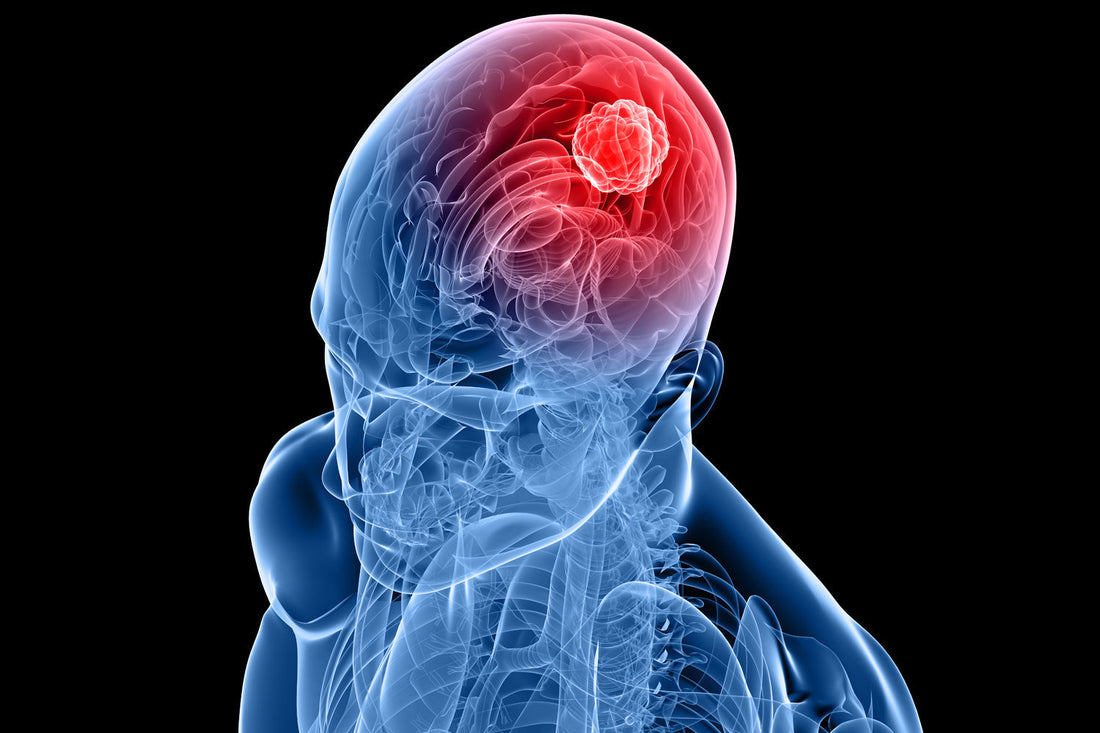膠質母細胞瘤是一種治療難度較高的腦癌。手術、化療和放療等標準治療方法往往面臨局限性,這主要歸因於血腦屏障的保護作用。此屏障阻止許多藥物和補充劑有效到達腦腫瘤 (Chen et al., 2020)。然而,分子氫療法因其能夠穿透血腦屏障的能力,展現出作為額外輔助治療的獨特潛力。
什麼是分子氫療法?
氫分子 (H₂) 是一種非常小的分子,被認為能夠減輕發炎和氧化應激,而氧化壓力是由被稱為自由基的有害分子引起的細胞損傷 (Rochette 等人,2023)。由於分子尺寸小,它能夠輕鬆穿透血腦屏障,因此在治療膠質母細胞瘤等腦部疾病方面尤其有效 (Chen 等人,2020)。
為什麼氫氣對治療膠質母細胞瘤有前景?
- 穿過血腦障壁:將抗氧化作用直接傳遞到腦腫瘤(Chen et al.,2020)。
- 減少腫瘤生長:研究顯示氫氣可以減緩膠質母細胞瘤細胞的生長(Rochette 等人,2023 年)。
- 減少化療和放療的副作用:氫氣已顯示出保護健康細胞免受這些治療造成的損害的潛力,從而降低疲勞和組織損傷等副作用(Chen 等人,2020 年)。
氫療法的其他優勢
- 支持術後恢復:吸入氫氣可以減少手術後的腦腫脹,從而提高舒適度並加速恢復(Wu et al.,2024)。
- 改善認知功能:氫氣可以透過促進大腦粒線體中的能量(ATP)產生來增強大腦功能並減少疲勞,這可能會提高警覺性並減少疲勞(Chen 等人,2020 年)。
- 氫療法還可以保護細胞免受氧化壓力和發炎的影響,幫助減少化療和放射治療引起的副作用,如疲勞、認知能力下降和組織損傷(Chen 等人,2020 年;Rochette 等人,2023 年)。

圖1.質子和氫氣療法對致癌過程中氧化壓力和發炎的影響。活性氧 (ROS) 透過氧化壓力和發炎促進細胞致癌。氧化壓力和發炎之間存在相互作用;這種相互作用與 NRF2 和 NF-κB 的活化有關。膠質母細胞瘤 (GBM) 是一種固有腦腫瘤,被認為起源於神經膠質幹細胞或祖細胞。 GBM 表現出高度的腫瘤內異質性和浸潤性。質子和氫氣療法可降低細胞遷移和增殖,並誘導 GBM 細胞凋亡。氫氣和質子已被證明對膠質瘤具有預防和治療作用,為此類惡性腦腫瘤的治療開闢了新的視角。 ( Rochette 等人,2023)
富氫水與吸入氫氣
兩種氫療法都有明顯的優點:
- 富氫水:易於日常飲用,方便持續使用。
- 氫氣吸入:帶來即時、全身益處,並在研究中顯示出強大的功效(Wu 等人,2024 年)。
兩種方法的結合可以透過持續向大腦和身體供應氫氣來最大限度地提高治療效果,儘管需要更多的研究來充分證實這一點。
(建議插圖:圖表顯示氫分子穿過血腦屏障,保護腦細胞。)
減少化療和放療的副作用
分子氫療法可以顯著減少化療和放療相關的副作用,例如組織損傷和發炎。臨床研究表明,氫療法有助於緩解這些治療引起的氧化壓力、發炎和疲勞,且不會影響其療效 (Chen et al., 2020; Cole et al., 2021)。氫療法還可以預防這些療法引起的認知能力下降,從而進一步提高患者的生活品質 (Chen et al., 2020)。
分子氫療法的安全性
臨床研究證實了分子氫療法的安全性:
- 即使長時間吸入氫氣,也沒有顯示出明顯的副作用(Cole 等人,2021 年)。
- 飲用富氫水同樣安全,不會造成已知的健康風險(Chen 等人,2020 年)。
結論
分子氫療法為膠質母細胞瘤患者提供了頗具前景的支持性治療。它能夠穿過血腦屏障,減輕發炎、氧化壓力以及化療和放療的副作用,使其具有獨特的益處。此外,氫療法還可能透過增強認知功能和減輕疲勞來改善患者的整體生活品質。儘管仍需進一步研究,但目前的證據有力地支持分子氫療法是一種安全且有益的輔助治療方法。
參考
Chen, J., Mu, F., Lu, T., Ma, Y., Du, D., Xu, K., ... & Huang, X. (2020). 氫腫瘤學敘述性綜述:從現實證據到氫癌症中心。醫用氣體研究,10 (3), 127-133。
Cole, AR, Sperotto, F., DiNardo, JA, Carlisle, S., Rivkin, MJ, Sleeper, LA, & Kheir, JN (2021).健康成人長期吸入空氣中氫氣的安全性。 《重症監護探索》,3 (10), e0543。 https ://doi.org/10.1097/CCE.0000000000000543
Rochette, L., Dogon, G., Zeller, M., Cottin, Y., & Vergely, C. (2023). 分子氫和質子在膠質母細胞瘤治療中的抗腫瘤活性:一種非典型藥理學? 《腦科學》,13 (8), 1168. https://doi.org/10.3390/brainsci13081168
Wu, F., Liang, T., Liu, Y., Wang, C., Sun, Y., & Wang, B. (2024). 圍手術期氫氣吸入對膠質瘤患者腦水腫及預後的影響:一項單中心隨機對照研究。 Frontiers in Neurology, 15 , 1413904. https://doi.org/10.3389/fneur.2024.1413904

